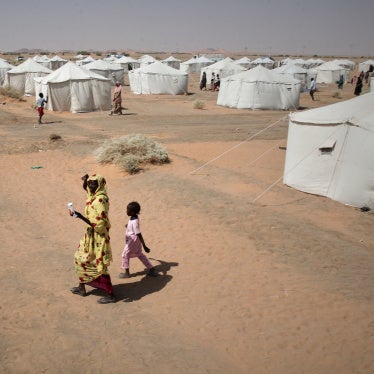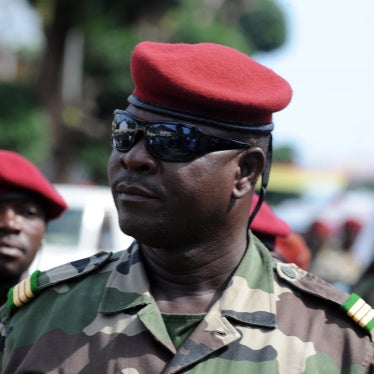|
March 3, 2004 |
Congolese government refers the situation in the Democratic Republic of Congo (DRC) to the ICC. |
|
June 21, 2004 |
ICC prosecutor decides to open an investigation in the DRC. |
|
March 19, 2005 |
Thomas Lubanga Dyilo is arrested on non-ICC-related charges and detained in Kinshasa, DRC. |
|
February 10, 2006 |
Pre-Trial Chamber I issues an arrest warrant under seal against Lubanga. |
|
March 17, 2006 |
Lubanga is surrendered to the ICC. |
|
November 9-28, 2006 |
Pre-Trial Chamber I holds hearing to confirm charges against Lubanga; four victims are authorized to participate. |
|
January 29, 2007 |
Pre-Trial Chamber I confirms the charges against Lubanga and sends case to trial. |
|
June 13, 2008 |
Trial Chamber I halts indefinitely the proceedings due to a failure by the Office of the Prosecutor (OTP) to disclose exculpatory material. |
|
November 18, 2008 |
Trial Chamber I decides to resume proceedings after problems with disclosure of evidence to Lubanga have been resolved. |
|
January 26, 2009 |
Lubanga trial commences; 93 victims are authorized to participate. |
|
January 28-July 14, 2009 |
ICC prosecutor presents its case; calls 25 witnesses. |
|
May 22, 2009 |
Victim participantsfile an application claiming that existing evidence presented by the prosecution warrants the addition of charges of sexual slavery and cruel and inhuman treatment, notably against girl child soldiers. |
|
July 14, 2009 |
A majority of judges in Trial Chamber I rule that additional charges should be added. The decision is appealed. In October, Trial Chamber I decides to suspend the trial pending resolution of this issue. |
|
December 8, 2009 |
Appeals Chamber reverses trial chamber’s decision to add charges. |
|
January 7, 2010 |
Trial recommences with the hearing of two expert witnesses called by the chamber and testimony of three victim participants.
|
|
January 27, 2010 –April 15, 2011 |
Lubanga’s defense presents its case; calls 20 witnesses. |
|
July 8, 2010 |
Trial Chamber I orders proceedings stopped a second time because of prosecution’s failure to disclose the name of one of its intermediaries to the defense. |
|
October 8, 2010 |
Appeals Chamber reverses the decision to stay proceedings. |
|
December 10, 2010 |
Lubanga’s defense requests that the case be thrown out, arguing that the Office of the Prosecutor engaged in an “abuse of the process” that affected Lubanga’s right to a fair trial. |
|
February 23, 2011 |
Trial Chamber I rejects the defense application to halt the Lubanga trial. |
|
May 20, 2011 |
Evidence phase in the Lubanga trial is officially over. |
|
August 25/26, 2011 |
Hearing of the parties’ final oral submissions; 123 victims are authorized to participate. |
|
March 14, 2012 |
Delivery of the verdict. Lubanga is found guilty of the crimes of conscripting and enlisting children under the age of 15 and using them to participate actively in hostilities. |
|
June 13, 2012 |
The Trial Chamber holds a sentencing hearing at which all parties make statements. |
|
July 10, 2012 |
Lubanga is sentenced to 14 years imprisonment, with the period from March 2006 to July 2012 deducted from his sentence. |
|
August 7, 2012 |
Trial Chamber I issues its decision on the principles and procedures to be followed during the reparations process. |
|
October 3, 2012 |
Lubanga’s defense appeals both Lubanga’s Judgment and his sentence. The Prosecutor also appeals, seeking a longer sentence. |
|
December 1, 2014 |
The Appeals Chamber upholds Lubanga’s conviction and his sentence, rejecting both the defense and the Prosecution’s appeals. |
|
November 3, 2015 |
The Trust Fund for Victims submits its draft implementation plan for reparations. |
|
October 21, 2016 |
The Trial Chamber II approves the Trust Fund for Victims’ plan for symbolic collective reparations. |
|
April 6, 2017 |
The Trial Chamber II approves the Trust Fund For Victims’ framework for collective service-based reparations. |
|
December 21, 2017 |
The Appeals Chamber sets Lubanga’s liability for reparations at US$10,000,000. |








